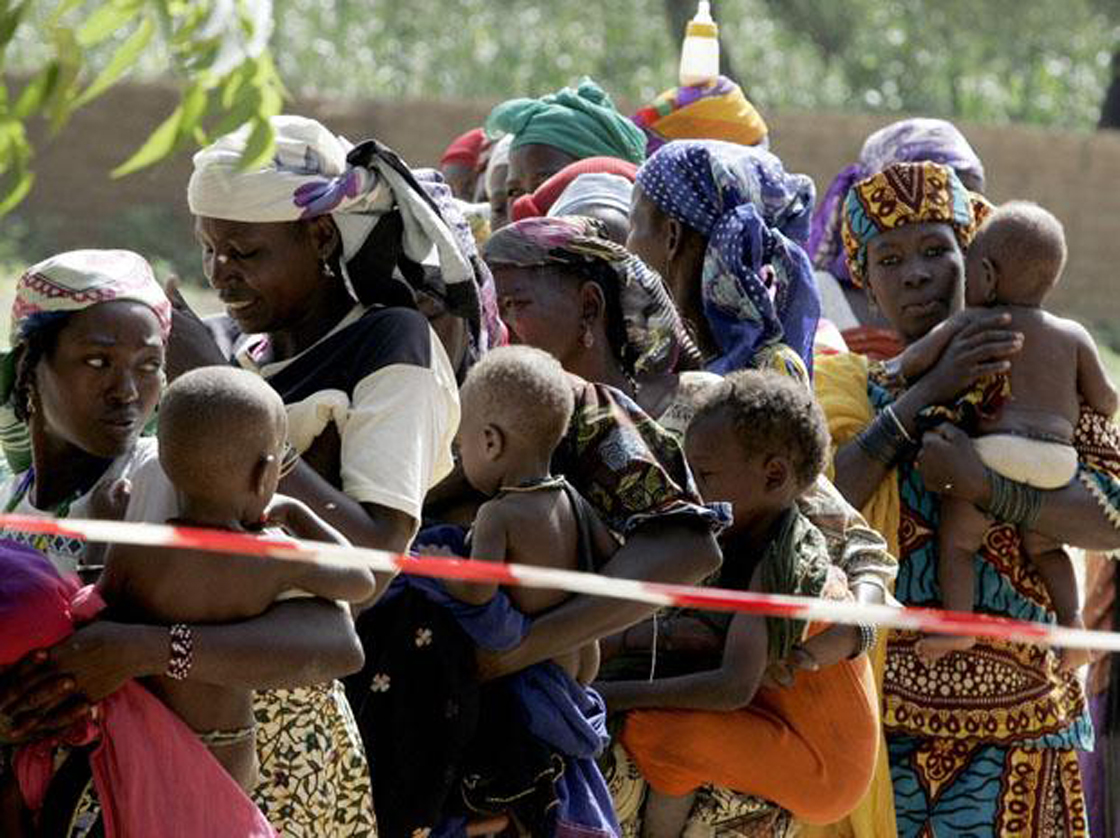TORONTO – Dr. Stanley Zlotkin remembers three months he spent in a remote area of Nigeria while he was a medical student nearly two decades ago.

The area was so out of reach, he had to fly into the community, where he’d be helping a Methodist Mission hospital.
There was no running water, no electricity and a bare bones health system.
And instead of four seasons they had two – wet season when they’d grow crops and dry season when they’d survive off rations set aside. By the end of dry season came “hungry season” when the food ran out and locals skipped meals.
The experience transformed his life, Zlotkin says.
“It actually changed my DNA and my attitude and my experience in life and it’s affected me ever since then,” he told Global News.
“I saw phenomenal poverty, and I saw families that worked and lived together. I realized how fortunate we are in Canada and decided then not necessarily that I’d devote my career to it but if I could give back a little or if I could share what we have in Canada with the developing world, I would,” he said.
Fast forward to 2013, where Zlotkin is now the chief of Sick Kids’ Global Child Health Program.
The system unveiled its latest initiative in poverty-stricken Tanzania on Tuesday marking the hospital’s seventh annual Global Child Health Day. The hospital is working with the AMREF, the African Medical and Research Foundation for the project.
- B.C. to ban drug use in all public places in major overhaul of decriminalization
- 3 women diagnosed with HIV after ‘vampire facials’ at unlicensed U.S. spa
- Solar eclipse eye damage: More than 160 cases reported in Ontario, Quebec
- ‘Super lice’ are becoming more resistant to chemical shampoos. What to use instead
Newborn care in Tanzania
Next month, a doctor, nurse practitioner and a project manager who are all specialists in newborn care will be heading to Tanzania for two weeks to help their local counterparts.
The Sick Kids initiative already exists in Ghana and Ethiopia and another project is underway in which doctors will train their counterparts in the Caribbean: Barbados, Jamaica, St. Vincent, Bahamas and Trinidad and Tobago.
In that case, the experts will focus their efforts on teaching these Caribbean doctors about caring for babies with cancer. In these island nations, cancer rates in children are rising yet doctors don’t know how to treat the disease along with blood disorders.
The projects are meant to train local doctors on how to care for children instead of having visiting Canadian doctors looking after patients.
“Our philosophy is that we do not want to treat patients but we want to provide the capacity of local people to provide their own care,” Zlotkin said.
So these Canadian doctors will share their expertise with 15 lab technicians, oncologists and physicians. Then those trainers will shed light on what they’ve learned with fellow doctors.
“It’s our hope that by our training, 15 and 30 and 45 trainers will be able to influence what happens in the entire country,” Zlotkin said.
In Tanzania, the rates of newborn death are about 50 per 1,000 lives.
Meanwhile in Canada, it’s much lower at five per 1,000 live births. And overall, the major causes of infant death in Tanzania are largely preventable: infectious diseases, premature birth, and birth asphyxia.
In this project, doctors will make several trips to Tanzania from Canada to teach local physicians how to identify pneumonia, malaria and infections and treat the conditions accordingly.
Resources are also limited in these underdeveloped countries.
In villages, a local primary care provider would be someone with elementary level education or even a village healer. The next step up would be a regional health centre with a doctor and a few nurses but with little supplies.
“They might have a few drugs, they might have one incubator, and they may or may not have oxygen or provisions for intravenous antibiotics,” Zlotkin said.
Following that is a regional hospital where some locals travel by walking far distances to get to.
Parents have universal hopes for their children regardless of country
The ideas for projects are done following a needs assessment. Sick Kids officials will consider a third world country’s issues and see if Canadian expertise would help.
“We’re only doing projects where there’s a connection between the needs of a local community and our level of expertise,” Zlotkin explained.
In his line of work, researching how to treat childhood anemia from iron deficiency, he’s been to Ghana and Ethiopia and across South Asia – Pakistan, Bangladesh, Mongolia, India and China, to name a few countries.
Despite the differences from country to country, one pattern remains the same.
“No matter where I am in the world, the parents want the same thing: they want their children to be healthy, they want their children to have as much education as they can get, they want their children to get a good job, have a roof over their heads, get married and have babies and live a happy life,” he said.
“What’s incredible is no matter what language you speak to parents in, that’s exactly the answer you get anywhere in the world.”
Read more about Global Child Health Day here.
carmen.chai@globalnews.ca
Follow @Carmen_Chai//


Comments